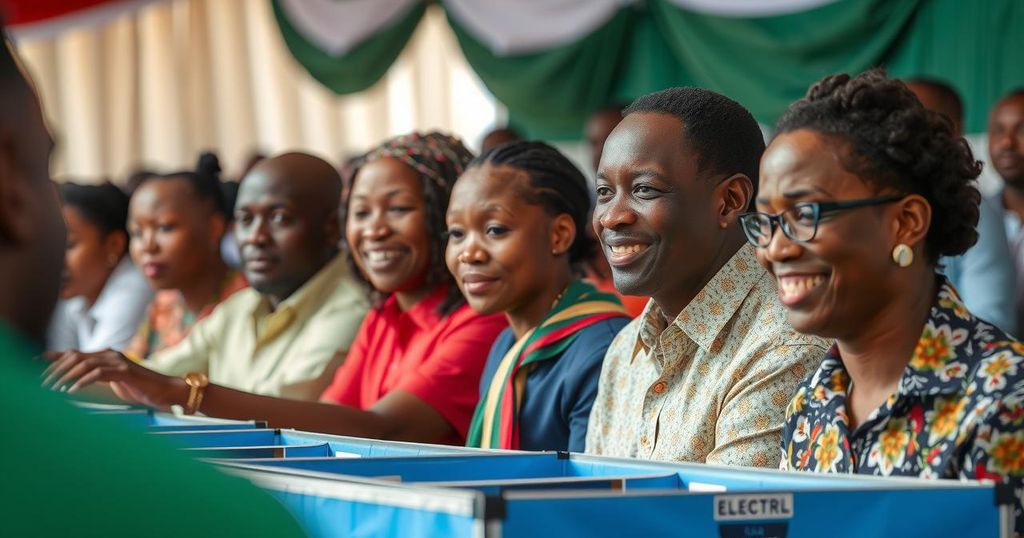Comoros Voters Head to Polls for Crucial Parliamentary Elections

Voters in Comoros are electing a new 33-seat parliament amid allegations of prior electoral irregularities. President Azali Assoumani, who has ruled since 1999, faces accusations of authoritarianism, with concerns over his son’s rising influence. The election features nearly 100 candidates, although boycott calls from some opposition groups exist. Results are expected by Friday.
Voters in Comoros are participating in parliamentary elections for the archipelago’s 33-seat assembly, following the re-election of President Azali Assoumani last year, which was fraught with allegations of irregularities by opposition factions. Polling stations opened on Sunday, with a voter registration of approximately 338,000 individuals. The previous parliamentary elections took place in January 2020, and the Supreme Court has approved nearly 100 candidates for this term.
President Assoumani, who has held power in Comoros since a coup in 1999, faces accusations of authoritarianism. His challengers claim he is grooming his eldest son, Nour El-Fath, to succeed him after his term ends in 2029. In an unprecedented move, Assoumani delegated extensive authority to his son in early 2024, overseeing all governmental operations. While some opposition groups, notably the Juwa party, advocate for election boycotts, others, such as the Hope of the Comoros party, recognize the electoral process as an opportunity to illuminate the regime’s deficiencies.
A key figure from the opposition, Hamidou Karihila, remarked on the situation, advocating for participation to expose the regime’s flaws. Election results are anticipated to be announced by Friday.
The Comoros, an archipelago located in the Indian Ocean, has faced political turbulence marked by coups and allegations of electoral misconduct. Following the disputed re-election of President Azali Assoumani in 2022, a significant parliamentary election is underway. Assoumani, having ruled since 1999, has been characterized by controversial leadership and is under scrutiny for perceived attempts to consolidate power within his family. The current parliamentary election addresses not only governance structures but also the enduring tensions between the ruling party and opposition groups.
In summary, the parliamentary elections in Comoros represent a significant political event with potential implications for the governance of the nation. President Azali Assoumani’s long-standing rule, coupled with allegations of misconduct and the entrenched rivalry with opposition parties, has set the stage for a charged electoral atmosphere. The public’s engagement in these elections may reveal both the vulnerabilities of the current regime and the aspirations of the electorate for democratic governance.
Original Source: www.armidaleexpress.com.au








